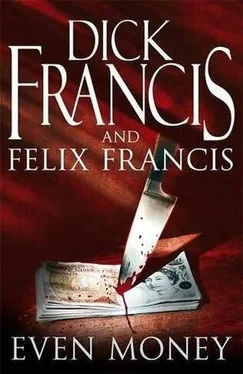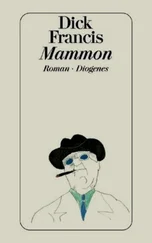First, we climbed the steps to the Opera House and marveled at the shell-like arches of its iconic roof. Then we trekked around the Botanical Gardens and rested on Mrs. Macquarie’s Chair, a seat carved out of the natural rock by the convicts in 1810. The seat has a panoramic view of Sydney Harbour, and, the story goes, Mrs. Macquarie, the governor’s wife, would sit there for hours on end longing to be aboard one of the ships leaving for England and home.
After three days of dawn-to-dusk tourism, including climbing to the very top of the Harbour Bridge, Sophie and I were exhausted, and our sore feet were grateful for the short breather as we flew the hour or so to Melbourne.
Before we’d left England, I had used the Internet to engage a private detective to help in the search for my sisters, and he was waiting for us at Melbourne Airport.
“Lachlan Harris?” I asked a young man holding up a TALBOT sign at the baggage claim.
“Sure am,” he said. “But call me Lachie.” He was short, about thirty, with a well-bronzed face and spiky fairish hair, with highlights.
“Ned Talbot,” I said, shaking his hand. “And this is my wife, Sophie.”
“G’day,” he said in typical Australian fashion. He shook her hand too. “Good to meet you both.”
“Any news?” I asked, eager to hear immediately. I had purposely not called him from Sydney, although, at times, I had been quite desperate to do so.
“Yes,” he said. “As a matter of fact, I have some good news for you. But let’s get out of the airport first. I’m taking you to see your father’s house.” And, with that, he picked up our suitcases and turned for the exit. We followed, but I was rather frustrated by his lack of explanation.
“All in good time,” he said when we were in his car leaving the airport.
“But what’s the news?” I asked him again.
“I’ve found the two daughters of Mr. Alan Grady,” he said.
“My sisters,” I said, all excited like a young child on Christmas morning.
“Yes,” he said. “As you say, your sisters.” He didn’t go on.
“And?” I asked eagerly. “When can I meet them?”
“There’s a slight problem,” he said.
“What problem?”
“They don’t believe you’re their brother.”
“What?” I cried. It wasn’t something that I had even considered. “Why not?”
“They say they have documentary evidence that shows their father, Alan Charles Grady, was born in Melbourne in March 1948. I’ve checked with the State of Victoria Record Office,” Lachie said. “Alan Charles Grady was indeed born in the Royal Melbourne Hospital on March 15, 1948. I’ve got a copy of his birth certificate.” He removed a folded sheet of paper from his jacket pocket and handed it over.
Mr. John Smith, or whoever he was, had told me in my car near Stratford that my father’s “Alan Grady” birth certificate had been genuine, but I hadn’t really believed him.
“It must be a fake,” I said. “Or else my father must have stolen the identity of the real Alan Grady.”
“I’ve checked in the register of deaths,” Lachie said. “No one called Alan Charles Grady who had that birthday has been recorded as dying.”
“Perhaps he died somewhere else, not in Australia.” I said. “Maybe on the ship where my father worked.”
I looked at the birth certificate. Both of Alan Grady’s parents were named, together with their addresses and occupations.
“How about these parents shown on the certificate?” I asked.
“Both dead,” said Lachie. “I checked. It seems they both died in the swine flu epidemic that struck Melbourne in 1976. They were quite old by then, in their seventies. You know, they were elderly parents even when their son was born.”
“Did they have any other children?” I asked him.
“None that I could find.”
“So where does that leave me?” I asked, somewhat deflated.
“I didn’t say the Grady daughters wouldn’t meet you,” he said. “Simply that they don’t accept that you are their brother.”
“Oh,” I said. “That’s all right, then. I’ll just have to convince them.”
Lachie Harris drove Sophie and me to Macpherson Street, in Carlton North, and pulled up outside number 312.
It was the middle property of a terrace row of single-story houses, all with verandas and elaborate wrought-iron railings.
“Victorian,” Lachie said. “That’s Victorian by era rather than by the state we’re in.” He laughed at his little joke. “These types of properties are known as ‘Boom Homes,’ as they were built during the boom time of the nineteenth century. After the gold rush of the 1850s.”
“They’re very pretty,” Sophie said. “But they must be dark inside.”
The houses were long and thin from front to back, and, as terrace homes, they had no windows down the sides.
“Can we see?” I asked. “I’ve got the keys.” I showed him the ring and the three keys that had been in my father’s rucksack.
“Ah,” said Lachie apologetically, “I’m afraid we can’t.”
“Why?” I asked. “I am his son.”
“His daughters have taken out an injunction to prevent you entering the property.”
“They’ve done what!” I was astounded.
“Sorry,” said Lachie. “These types of property are worth quite a lot these days, and the Grady daughters tend to believe that you are only here because you are after their inheritance.”
I sat there with my mouth open.
“I don’t want money,” I said, exasperated. “I want family.”
“Nevertheless,” Lachie went on. “This whole business is going to be a legal can of worms. Alan Grady left a will, and, as we all know, where there’s a will, there’s a disgruntled relative.” He laughed again.
“But if there’s a will, then what’s the problem?” I said. “Surely he would have left everything to his daughters anyway.”
“The will is in the name of Alan Charles Grady,” Lachie said,
“and, according to the registry here, he’s not dead. You, meanwhile, claim that the man who owned this house was your father, a Peter James Talbot, now deceased, but it doesn’t say that on the property deeds.”
Now it was me who laughed. Absolutely nothing about my father was as it appeared.
“Can’t we just go and have a quick peep inside?” I said. “No one would ever know.”
“I’m afraid we can’t,” he said. “Those keys might work in the door locks, but they won’t be any good for the padlocks the court has had applied as well.”
“Oh,” I said, peering closely at the house, but it was too dark behind all the lacy ironwork to see the front door properly.
The earlier excitement of my arrival in Australia had evaporated completely. I felt dejected and lost. “So what’s next?” I asked miserably.
“Well, let’s look on the bright side,” he said. “The Grady girls have agreed to meet you, and I have set up the meeting for tomorrow. It’s Australia Day, and we are going to the races.”
“Horse racing?” I asked.
“Yes, of course,” he said. “I’ve arranged for us to meet them at Hanging Rock races tomorrow afternoon.”
“Are they married?” I asked, eager for knowledge. “Do they have children?”
“Not married,” Lachie said. “Can’t say about children, but I don’t think so.”
“Didn’t some schoolgirls once go missing at Hanging Rock?” Sophie said. “During a picnic.”
“That was in a film,” said Lachie. “But it wasn’t a true story.”
“What are their names?” I asked.
“What, the girls in the film?” Lachie said.
“No, silly, the Grady daughters.”
“Patricia and Shannon. Patricia’s the elder. She’s twenty-nine. Shannon is two years younger.”
Читать дальше












